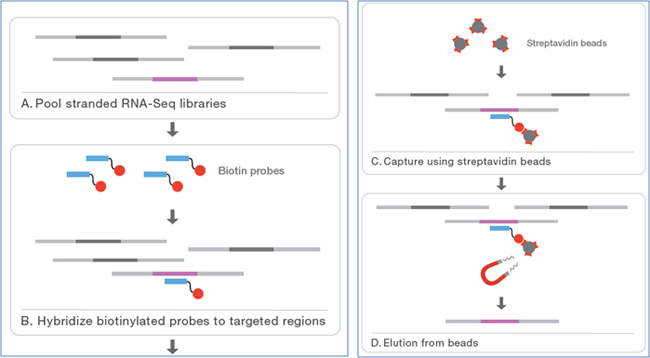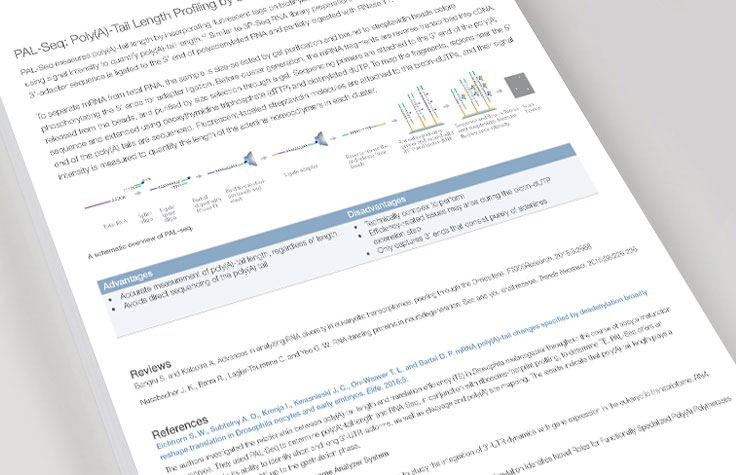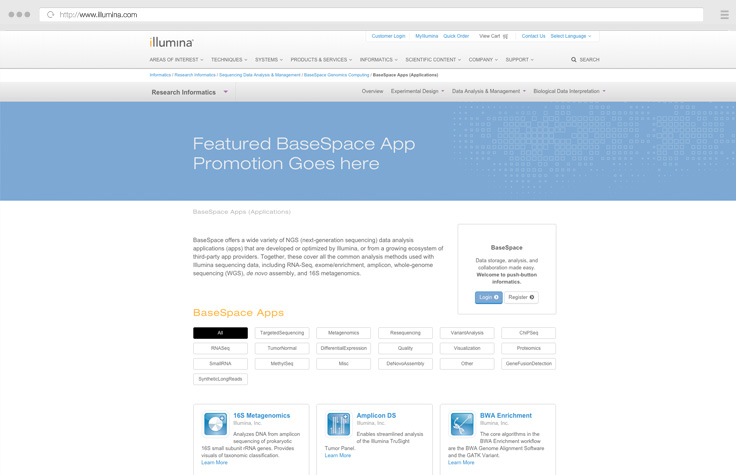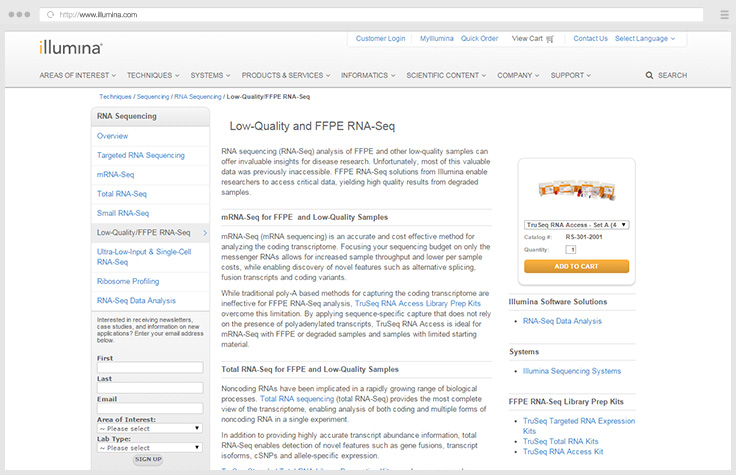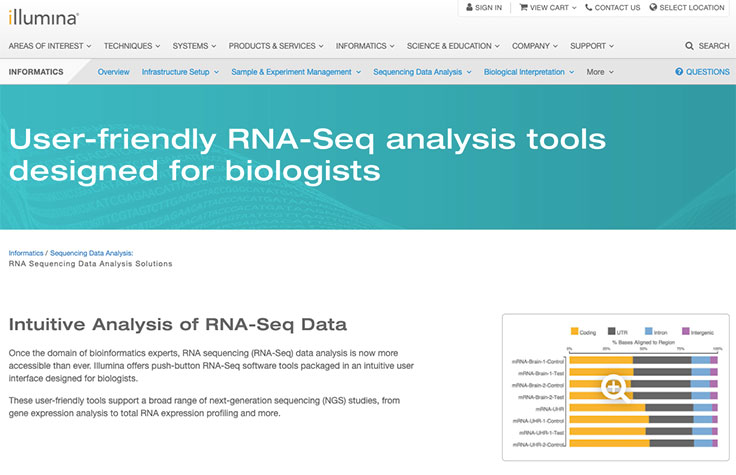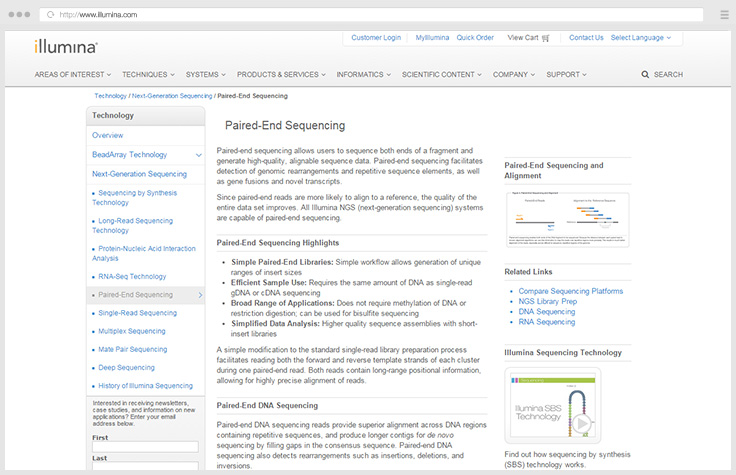Targeted RNA Sequencing
Introduction to Targeted RNA Sequencing
Targeted RNA-sequencing (RNA-Seq) is a highly accurate method for selecting and sequencing specific transcripts of interest. It offers both quantitative and qualitative information. Targeted RNA-Seq can be achieved via either enrichment or amplicon-based approaches, both of which enable gene expression analysis in a focused set of genes of interest. Enrichment assays also provide the ability to detect both known and novel gene fusion partners in many sample types, including formalin-fixed paraffin-embedded (FFPE) tissue.
Advantages of Targeted Enrichment RNA-Seq
RNA enrichment provides quantitative expression information as well as the detection of small variants and gene fusions. RNA enrichment offers the following features:
- Compatible with difficult samples such as FFPE tissue
- Low input (requires 10 ng of total RNA or 20 – 100 ng of FFPE RNA)
- Detects both known and novel fusion gene partners
- Profiles gene expression with a broad dynamic range
Advantages of Targeted Amplicon RNA-Seq
RNA expression panels can be designed to focus on RNA sequences of interest, or custom content can be added to fully optimized and experimentally validated panels.
- Offers a highly accurate and specific method for measuring transcripts of interest
- Provides qualitative and quantitative information for differential expression analysis, allele-specific expression measurement, and gene fusion verification
- Measures dozens to thousands of targets simultaneously
- Is compatible with low-quality or FFPE-derived RNA samples
New Views of Cancer Pathways in Pediatric Leukemia
Researchers are using the TruSight RNA Pan-Cancer Panel to understand the role of fusion genes in pediatric leukemia.
Read Interview
RNA Sequencing Library Prep
Our RNA-Seq library prep solutions for targeted RNA sequencing include exceptionally fast, tagmentation-based workflows for deep insights into many transcripts of interest, including the RNA exome.
Learn More About RNA Library PrepTargeted RNA-Seq Workflow
Illumina sequencing by synthesis (SBS) chemistry is the most widely adopted NGS technology, generating approximately 90% of global sequencing data.*
We offer integrated targeted RNA-Seq workflows that simplify the entire process, from library preparation to data analysis and biological interpretation.

Methods for RNA sequencing
This RNA sequencing methods guide provides Illumina solutions for profiling RNA, from targeted panels to the whole transcriptome. Illumina RNA sequencing workflows seamlessly integrate library prep, sequencing, and data analysis to support transcriptome research.
Download guideRelated Solutions
Cancer Research: Variant Detection

Monitor gene expression and transcriptome changes with targeted RNA-Seq to better understand which variants are expressed and which may affect tumorigenesis and progression. Learn more about RNA-Seq in cancer research.
Drug Development Research

Explore genomic sequencing solutions for all phases of the drug development pipeline. Characterize gene expression profiles from a custom panel with a few defined targets to the whole transcriptome. Learn more about NGS in drug development.
Neurogenomics Research

Genomic technologies can help reveal the mechanisms behind complex neurological diseases such as Alzheimer’s and Parkinson's disease. Learn more about neurogenomics.
Immunogenomics Research

See how NGS enables research into autoimmune disease mechanisms, the immune repertoire, and the functional consequences of immune-related genetic variation. Learn more about immunogenomics.
Interested in receiving newsletters, case studies, and information on sequencing methods?
Enter your email address.
Additional Resources
*Data calculations on file. Illumina, Inc., 2015
